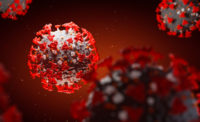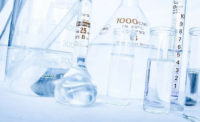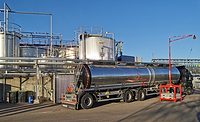Schütz Joins BASF’s ‘Helping Hands’ Initiative

The COVID-19 pandemic requires the strictest hygienic measures – particularly in clinics, doctors’ offices and nursing homes. All around the world, disinfectant has become scarce and more supplies are urgently needed. With its “Helping Hands” project, BASF is helping to close the supply gap. The company is providing hand disinfectant free of charge to hospitals in the Rhein-Neckar metropolitan region of Germany. Schütz, a provider of transport packaging, is supporting the effort by supplying every second IBC for this project free of charge.
For the temporary production at the group’s main site in Ludwigshafen, Germany, all legal and technical conditions had to be met, as hand disinfectant had not been part of the BASF product range in the past. The company has the necessary know-how and some of the raw materials for production. The raw materials in stock were reassigned at short notice and the additional required raw materials were purchased externally. Schütz supplied the IBCs for the disinfectant. These IBCs comply with the latest packaging safety requirements for sensitive hygiene products.
In support and recognition of this project, the company is supplying every second container without charge to BASF. To facilitate the additional capacities and ensure the necessary supply security, production at the company’s headquarters is now running at full speed on the weekends. “With ‘Helping Hands,’ we are implementing another important project together in our long-standing partnership with BASF. We are pleased to be able to help,” said Veit Enders, part of the Schütz management.
As an environmentally friendly bonus, the IBCs are collected free of charge from end users by the Schütz Ticket Service and recycled internally as part of the sustainable reconditioning process.
The demand is so high that BASF is now successively expanding its production and supply scope: after initially supplying hospitals with intensive care and ventilation facilities, the disinfectants are now also being supplied to medical practices. Depending on current daily availability, BASF intends to gradually roll out supplies to other areas of the health care system in the Rhein-Neckar region.
Looking for a reprint of this article?
From high-res PDFs to custom plaques, order your copy today!






